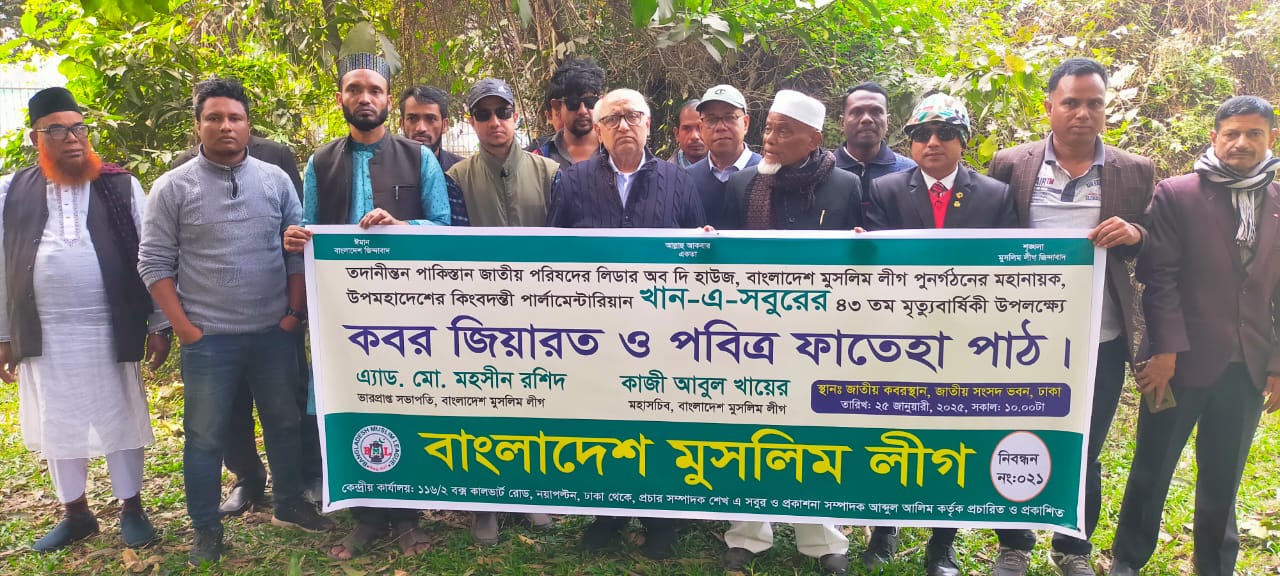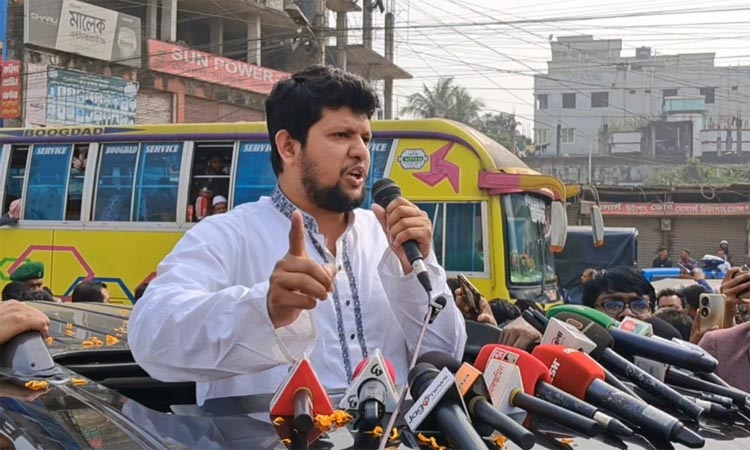
Khulna Bureau: The graves of legendary political figures like Khan-e-Sabur, Shah Azizur Rahman, Mashiur Rahman Khan Jadu Mia, Speaker Tamizuddin Sarkar, Ataur Rahman Khan, Abul Mansur Ahmed are located in the National Cemetery of the National Parliament Building. However, the previous fascist government has terrified and prevented ordinary people from coming to visit the graves. Thanks Allah SWT, now, as soon as we contacted the authorities, the lock of the cemetery was opened and arrangements were made for the Muslim League leaders and activists to visit the grave of Khan-e-Sabur.
My sincere thanks to the interim government and the authorities concerned for this. Due to differences of opinion and seeking party interests in everything, such national leaders with colorful political lives are disrespected today and we are even reluctant to recognize their contributions. History will not forgive anyone if they do not come out of this political subculture. Remembering the undeniable political contribution of Khan-e-Sabur, the grateful people of Khulna elected him to 3 seats in the 1979 parliamentary elections and ten years after his death, they named the main road of the city Khan-e-Sabur Road out of love. Fascist Hasina has canceled the name of Khan-e-Sabur Road out of revenge. Bangladesh Muslim League is making a strong demand to the interim government to immediately restore the road to the name Khan-e-Sabur Road. On the occasion of the 43rd death anniversary of the then Leader of the House of the Pakistan National Assembly, the great hero of the Bangladesh Muslim League reorganization, and the legendary parliamentarian of the subcontinent, Khan-e-Sabur, today (25 January, 2025) at 11.00 am, at the initiative of Bangladesh Muslim League, after visiting the grave of the deceased at the National Cemetery of the National Parliament Building, the party’s acting president, Ed. Md. Mohsin Rashid, made the above comments in a brief speech to the leaders present. Also present were party Secretary General Kazi Abul Khair, Vice President Syed Abdul Hannan Noor, Additional Secretary General Akbar Hossain Pathan and Kazi A. Ekafi, Publicity Secretary Sheikh A. Sabur, Publication Secretary Abdul Alim, Dhaka Metropolitan Muslim League leaders Maqsud Ahmed, Monir Hossain, Md. Yamin Khan, Youth Muslim League leaders Md. Ali Jinnah Manik, Shafiqul Islam Javed, Shahidul Islam Miraj, Md. Suman and others. The leaders also said that Khan-e-Sabur was one of those who created the politics of national consciousness in the minds of the backward and deprived Muslims of Bengal under British rule. Khan-e-Sabur, a holder of decent and polite politics, joined the greater Khulna district, which was still associated with India after the partition of the subcontinent, to the then East Pakistan on 17 August 1947 through an appeal to the Boundary Commission, which later became part of Bangladesh. In terms of evaluation, the inclusion of the greater Khulna region in Pakistan and Bangladesh is Khan-e-Sabur’s biggest achievement as a politician. He also initiated the industrial revolution by turning the backward greater Khulna, including Khalishpur and Daulatpur, into an industrial area. During his tenure as the Minister of Communications of Pakistan until 1969, he made amazing improvements in the country’s telecommunications system. This great man, who sacrificed his life, set a rare example by forming the ‘Khan-e-Sabur Trust’ and donating all his assets for philanthropic work. Bangladesh Medical College has now been established in his Dhaka residence. A lifelong soldier of the Muslim nation, this great leader Khan-e-Sabur, nicknamed ‘Saheb’ by the public of Khulna, is certainly an exemplary role model for the current corrupt politics.






